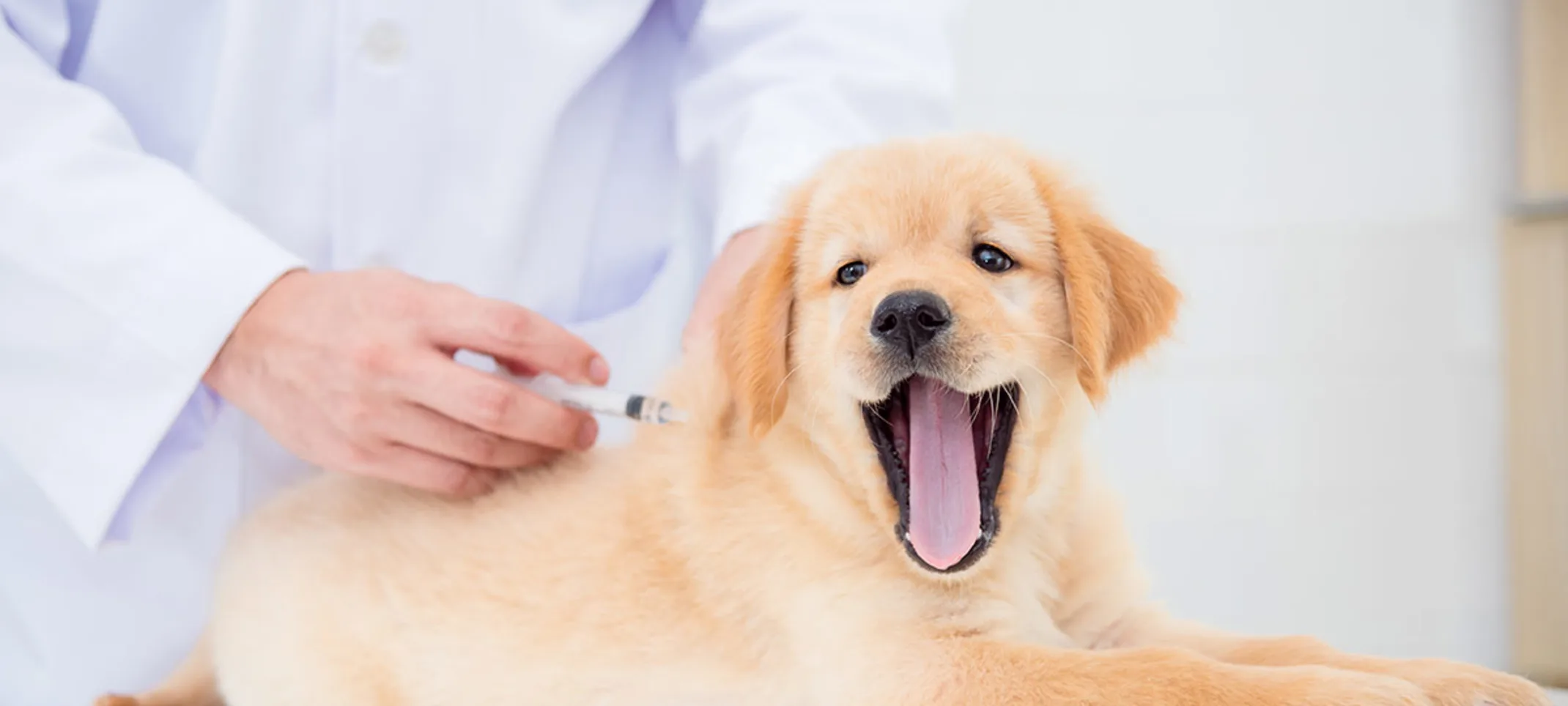Town & Country Animal Hospital
Vaccinations
Preventative care is an important aspect in maintaining your pet’s health. Proper vaccination is vital in protecting them against harmful diseases.

Overview
We believe that preventative care is one of the most important aspects of maintaining your pet’s health. There are a variety of diseases that affect animals, so proper vaccination of your pet is vital in protecting them from the many types of illnesses to which they are susceptible to. Vaccination is a procedure that has risks and benefits that must be weighed for every pet relative to his/her lifestyle and health. Not only are there different vaccines for different diseases, but there are also different combinations of vaccines. If you decide that vaccinating your pet is right for you, then we will work with you to decide which combination is best.
Why are vaccinations important?
Vaccinations are vital to the health and protection of your pet, and serve as a preventive measure in combating viral diseases like Parvovirus, Parainfluenza virus, Distemper, Lyme, Panleukopenia, Feline Leukemia Virus, and Rabies. They help prepare the body's immune system to fight the invasion of disease-causing organisms. While vaccines are important, not every pet needs to get immunized for every disease. Factors that are taking into consideration include but are not limited to: age, medical history, environment, travel habits and lifestyle. The core vaccines that most veterinarians consider vital to all pets because of exposure are canine parvovirus, distemper, canine hepatitis and rabies for dogs, and panleukopenia (feline distemper), feline calicivirus, feline herpesvirus type I (rhinotracheitis) and rabies for cats.
When should my pet get vaccinated?
Vaccinations are particularly important for puppies, kittens, and other young animals that have immature immune systems. Veterinary vaccinations generally begin at 6-8 weeks of age and then boostered throughout your pet’s life depending on the vaccine. Our doctors will determine the appropriate vaccination plan for your pet.
How are vaccines administered?
Vaccines help to combat diseases by exposing the pet's immune system to inactive or small amounts of a particular form of bacteria or virus. Vaccines are administered through a subcutaneous injection (under the skin), orally, or intra-nasally, depending on the vaccine.
Vaccinations are accompanied by a consultation and examination with our veterinarians to make certain that your pet's condition is stable enough to receive them. Proper and timely administration is necessary to ensure optimal protection.
What are the risks?
Immunizations should mildly stimulate the animal’s immune system in order to create protection from specific infectious diseases. This stimulation can create mild symptoms, ranging from soreness at the injection site to fever and allergic reactions.
Most pets show no ill effect from vaccination. Vaccine reactions may be minor and short-lived or require immediate care from a veterinarian. Clinical signs include:
Fever
Sluggishness
Loss of appetite
Facial swelling and/or hives
Vomiting
Diarrhea
Pain, swelling, redness, scabbing or hair loss around the injection site
Lameness
Collapse
Difficulty breathing
Seizures
Lameness
It is best to schedule your pet’s appointment so that you can monitor him for any side effects following administration of the vaccine. If you suspect your pet is having a reaction to a vaccine, call your veterinarian immediately.
